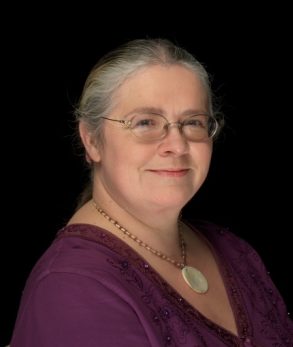Qualifications & Experience
"All misfortune is but a stepping stone to fortune" - Henry David Thoreau
A psychotherapist trains for longer than a counsellor and as a result has a wider range of knowledge, skills and experience which can help you explore the roots of problems and discover insights. A counsellor tends to focus on specific, current issues like bereavement or other losses, for example redundancy. I offer both and often one leads naturally into the other.
Experience
Over the years as a counsellor and psychotherapist I have experience of working in organisations and in private practice with people from diverse cultural and social backgrounds . I have worked in a residential centre for people who have attempted or considered suicide and with service users in mental health charities. I have facilitated groups and provided telephone support to people in crisis. I am employed as a counsellor by a local hospice where I help provide mental health services to people living with long term and life threatening conditions and people who have been bereaved through any circumstances. I also see clients who have been referred by their GP for a wide range of mental health issues.
I specialise in working with adults over the age of 18.

Background
Prior to training as a counsellor and psychotherapist I built a successful career in retail management and then changing circumstances encouraged me to re-evaluated my life. I have also been employed in the public, private, charity and voluntary sectors and count myself lucky to have had such a wide range of opportunities to learn from others. I think this helps me to empathise with different viewpoints but more importantly, has helped form my conviction that we all have a spark of soul which sometimes can use a bit of support to be fulfilled.
Specialisms
My practice brings me into contact with people who have many different and unique problems in their lives, and in addition I have particular experience in understanding of the following issues.

Bereavement
The death of a family member or friend (however close or remote) or even a much-loved pet can have an enormous and sometimes unexpected impact. For some it may seem like your world has come to an end too and you are lost on the edge of an abyss yourself. Grief can make you think about your own mortality in a way you may not have thought before, and unexpected feelings like relief might be hard to admit and might even feel shameful or guilt-making.
In a safe, non-judgemental place through counselling or psychotherapy you can make sense of things in whatever way feels natural to you, whether your loss was sudden or anticipated, natural, accidental, violent or through suicide.

Work-related Stress
Work-related experiences such as redundancy, bullying, burn-out, unemployment, career change, work-life imbalance and the importance of job satisfaction, all of which have an enormous impact on how we see ourselves and our place in the world.
Working for a large or small organisation, for a family business or being self-employed or trying to find out what our calling is in life can bring up very complex dynamics and emotions which counselling or psychotherapy could help untangle.
I provide counselling services to businesses under EAP (Employee Assistance Programmes) for staff referred by occupational health departments.

Helping Professionals and Trainees
I actively enjoy working with counselling/psychotherapy students and others in the helping professions such as nurses, therapists and professional healthcare assistants. I passionately believe it is important to care for ourselves in order to care for others, and that through understanding our own motivations and development we can enhance what we bring to our clients and patients, and increase our own satisfaction in our working lives.

Carers
Both non-professional and professional carers of people with long-term physical or mental health problems face sometimes overwhelming demands. You may have a mix of emotions (for example anger, depression, entrapment, duty and love) and find it hard sometimes to 'be there' when responsibilities are many and often conflicting.
Counselling and psychotherapy can provide the space and distance you need to care for yourself as well and to establish the effect another's illness has on those around them.
Qualifications
Like all ethical practitioners I have continued my professional and personal development through additional training. Some examples are Cognitive Behavioural Therapy (CBT), brief/solution focussed therapy and working creatively with dreams. These resources will give us a wide choice of how to work together and help me to respond effectively to what you bring to each session.
- My academic education however is:
- Counselling for Depression awarded by The Colchester Institute
- Diploma in Integrative Counselling and Psychotherapy awarded by the Center for Counselling and Psychotherapy Education
- Foundation Certificate in Integrative Counselling and Psychotherapy awarded by the Center for Counselling and Psychotherapy Education
- Bereavement Support Worker with Cruse Bereavement Care
- MA (Humanities) awarded by Leeds University
- BA (Humanities) awarded by University College Dublin
- I have published research in the e-journal Contemporary Psychotherapy and was subsequently on the editorial board of the same publication.
- I am registered by The United Kingdom Council for Psychotherapy, an accredited member of The British Association for Counselling and Psychotherapy and hold a current CRB check.
